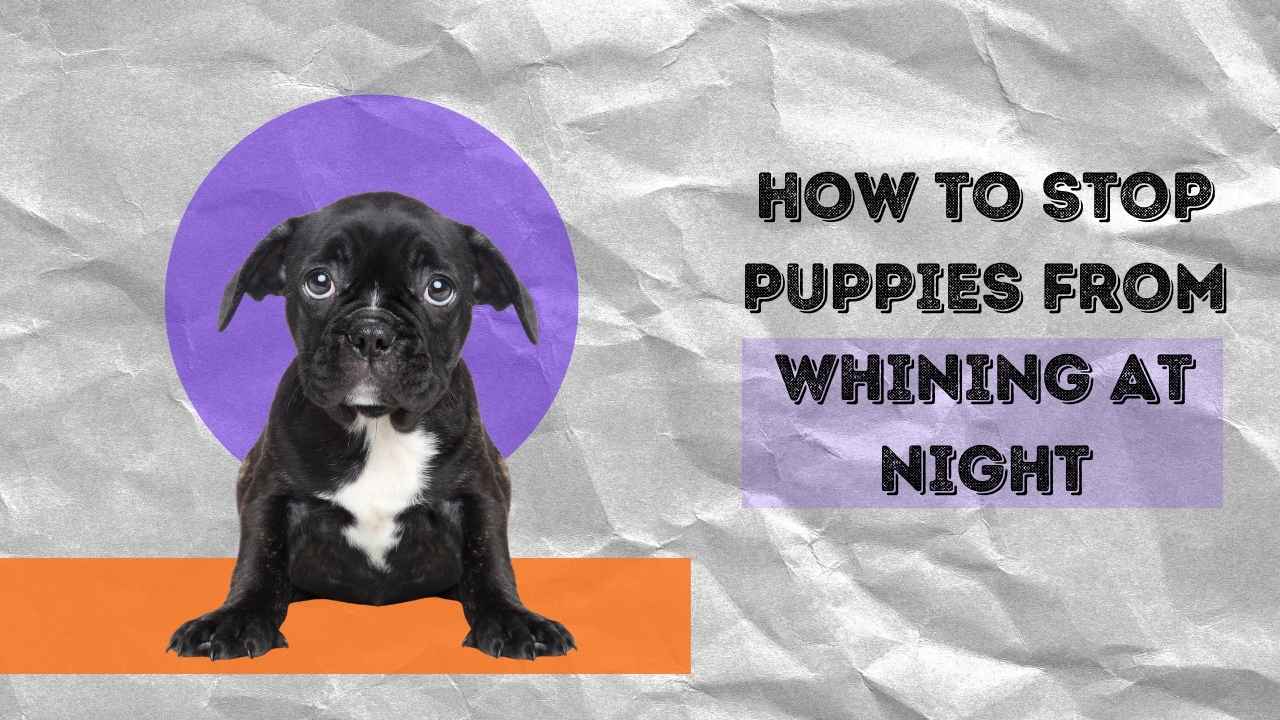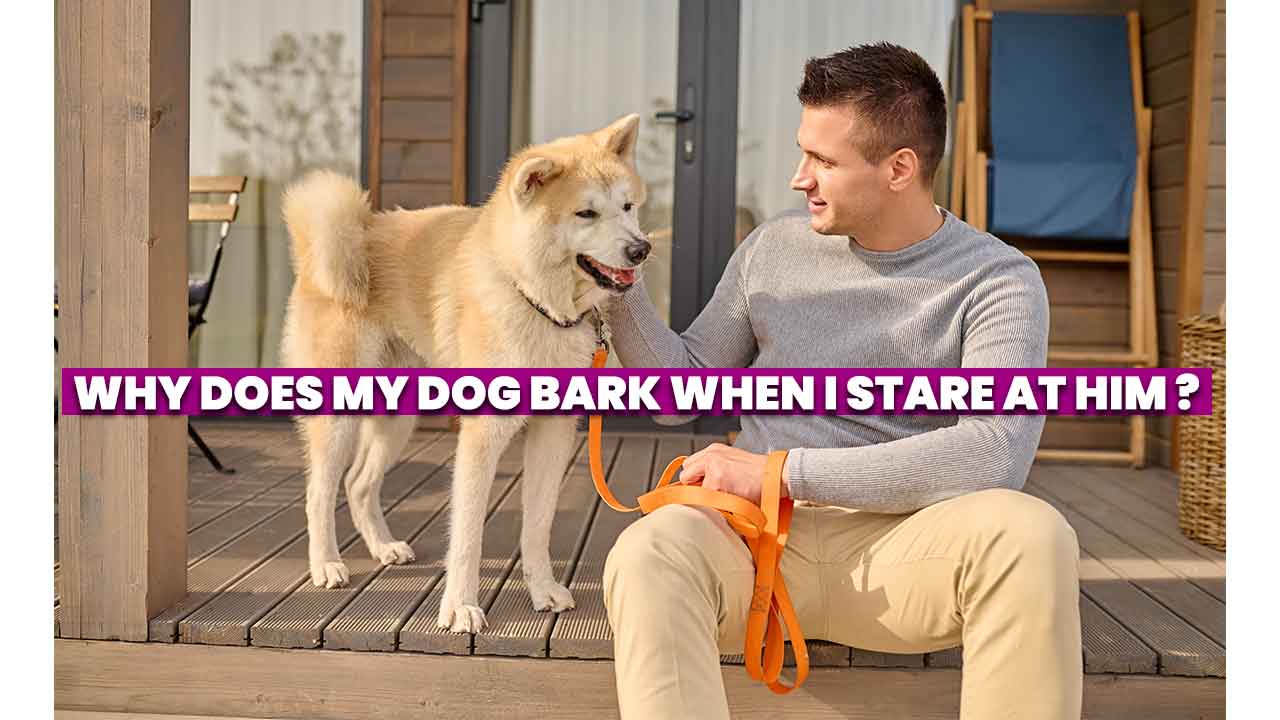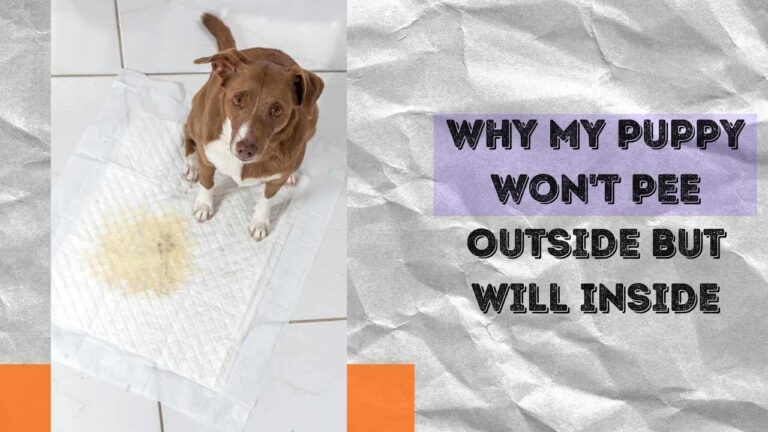How to Stop Puppies From Whining at Night
Prologue
At bedtime, I heard a high sound like a baby crying. It was my new puppy. They wanted to sleep but couldn't. Lots of pet owners find this hard, too. It makes everyone in the house wake up at night. The problem is stopping puppies from whining at night.
But, I found a way to fix this. I looked up how to make it better. I tried different things until I found what worked. I want to help you, too. In this guide, you will learn how to stop puppies from whining at night. Then, everyone will sleep better, not just the puppy.
Key Takeaways
- Understanding the common reasons for puppy whining at night, such as separation anxiety, hunger, and discomfort
- Establishing a consistent bedtime routine and creating a calming environment to promote better sleep
- Incorporating crate training and exercise to help puppies settle down and sleep through the night
- Addressing potty training and ensuring your puppy's basic needs are met to reduce nighttime whining
- Using calming aids and techniques, as well as seeking professional help if necessary, to overcome persistent whining

Understanding Puppy Whining
Many pet owners worry about their puppies whining at night. It's key to know why they do this. Puppies might whine because they're lonely, want attention, are hungry, or feel uncomfortable.
Common Reasons for Nighttime Whining
Puppy whining at night often comes from separation anxiety. Puppies love being around people and get sad when they're away. They whine hoping to be back with their family.
Addressing Separation Anxiety
To help with separation anxiety, start with positive training. Get the puppy used to being alone. Show them that leaving doesn’t mean you’re gone forever. This can make the puppy feel more secure and less likely to whine at night.
Establishing a Bedtime Routine
Creating a set puppy bedtime routine is key. It helps your pup relax. This routine can make sure they sleep all night. It also stops them from whining at night.
The Importance of Consistency
Puppies love knowing what to expect. A bedtime routine tells them it's sleep time. Doing the same things every night, like playing gently, teaches your puppy it's sleep time. This makes sleeping easier for them.
Creating a Calming Environment
Making a calming environment for puppies at night helps. Turn down lights and play soft music. Make sure their sleep spot is cozy. Add their favorite toys there too. This makes them feel safe and helps them sleep better.
Crate Training for Nighttime Comfort
Crate training is great for helping your puppy feel safe at night. It's all about making the crate a happy space. This makes your puppy less likely to cry at night. Let's see how crate training can be part of your pup's bedtime routine.
Introducing the Crate Gradually
To start crate training, go slowly and keep it fun for your puppy. First, put the crate where the family is a lot. This helps your puppy get used to it with the door open. Give them treats and praise when they go in. This shows the crate is a good place. Slowly let your puppy stay in the crate longer. Always leave water, toys, and soft bedding with them.

Making the Crate a Positive Space
Make the crate cozy and inviting. Use soft bedding inside. Adding a blanket over the top can help too. It makes it feel like a hiding spot. Don't forget to put some of your puppy's favorite toys or treats inside. This will make your puppy like the crate more. A happy crate means a happy and quiet night.
Exercise and Mental Stimulation
Make sure your puppy gets enough exercise and brain challenges before bed. This helps them calm down and sleep all night. Exercise helps make puppies tired. So, they sleep without waking up to cry in the night.
Tire Out Your Puppy Before Bedtime
Make your puppy very tired before bed. Play, walk, or train your puppy a lot. This uses up their energy. Then, they will sleep well all night.
Use puzzle toys or training to make your puppy think. This also helps them get tired. A tired puppy sleeps deeply.
So, play a lot and make them think before bed. This makes a happy and quiet night for everyone.
Potty Training for Peaceful Nights
It's very important to potty train your puppy. This stops them from whining at night because they need to go. By helping them meet their needs early, you can avoid night time troubles.
Recognizing Puppy Potty Signals
Begin by noticing your puppy's potty signals. They might walk in circles, smell things a lot, or wait by the door. When you see these signs, it's time to take them outside. This way, you help them avoid accidents and not cry at night.
Establishing a Consistent Schedule
Set a consistent puppy potty schedule to help everyone sleep better. Take your puppy out when they wake up, after eating, when they're playing, and just before bed. Keep to this plan and understand it takes time. Your puppy will get used to going outside when they feel the urge. Then, everyone can enjoy a good night's rest.

Addressing Hunger and Thirst
Puppies often whine at night out of hunger or thirst. Feed and water them well to stop puppies whining at night due to hunger or thirst. This simple step helps your puppy sleep better.
Make sure your puppy eats on time to avoid puppies whining at night due to hunger. Puppies need to eat more often because their stomachs are small. Providing them with nutritious food regularly keeps them full and happy.
Your puppy must drink enough water to not whine from thirst. Always have fresh water out, including a bowl in their bed area. You can also give them wet food or frozen snacks. This will make sure they stay healthy and sleep well.
| Strategies to Prevent Puppies from Whining at Night Due to Hunger or Thirst |
|---|
| Establish a consistent feeding schedule with high-quality, nutrient-dense foodProvide access to clean, fresh water at all times, including in the sleeping areaIncorporate wet food or frozen treats to increase hydrationMonitor your puppy's eating and drinking habits to ensure they are meeting their nutritional needsAdjust food and water as needed to meet your puppy's individual requirements |
By taking care of your puppy's food and drink needs, you make their sleep better. This also means less puppies whining at night due to hunger or thirst. Following these steps leads to a quiet and enjoyable night for both you and your puppy.
Ignoring Attention-Seeking Whining
Puppies may whine at night to get their owners' attention. It's cute but important not to respond to this whining. Giving in can make it harder to stop the behavior. Instead, reward your puppy when they are quiet. They will learn that being quiet and calm gets them what they want.

Rewarding Quiet Behavior
When your puppy is quiet, show them how happy you are. This could be with praise or treats. By doing this, your puppy will understand that being quiet is good. Gradually, they will whine less at night.
Being patient and consistent is key with your puppy's whining. It's hard to ignore, but very important. Over time, your puppy will realize that they don't need to whine for your attention. They will know that being quiet is better.
Using Calming Aids and Techniques
If your puppy keeps on crying at night, you can try a few methods. These ways can make your home calm. This might help your pup sleep better and not cry as much.
White Noise and Soothing Sounds
White noise and soothing sounds can be very helpful. They cover up loud sounds that may scare your puppy. This makes it easy for them to fall asleep. You can use machines that make white noise, play gentle songs, or natural sounds.
Pheromone Diffusers and Toys
Using pheromone diffusers and calming toys can be a great help. Diffusers let out nice smells that calm your puppy. Special toys, like soft friends or gentle blankets, make your puppy feel safe. Adding these to your puppy's sleeping area can help them have a quiet night.
Seeking Professional Help
Sometimes, if a puppy whines too much at night, you might need a vet or a dog trainer's help. They can make a plan just for your pup. This plan can help your dog sleep peacefully at night.
When to Consult a Veterinarian
If your puppy seems sick or extra tired when they whine, it's time to see a vet. The vet will check your pup to find out if something is wrong. They will help if your puppy needs medicine or other care. Seeing a when to see vet for puppy whining gives you a special plan for your pup.
Working with a Dog Trainer
A dog trainer is great for a puppy that whines because of bad habits. They will teach you why your pup whines and how to stop it. With a dog trainer for puppy whining, you can learn to make your pup sleep better. Then, you won't need as much professional help for puppy whining at night.
Patience and Perseverance
Stopping puppy whining at night takes patience and perseverance from pet owners. Every puppy is different, so finding what works may take time. Positive support helps puppies learn good sleep habits. This makes nights peaceful for the whole family.

Celebrating Small Victories
We must celebrate small wins in dealing with our puppy's whining. This includes a full night's sleep or whining that's less often. Giving praise keeps both puppies and owners going. It's a good way to keep up the hard work.
Sticking to the Plan
Being consistent is vital in stopping the whining. Even when progress is slow, sticking to the plan is key. This patient and steady effort is for the puppy's good. It helps everyone in the house to get the rest they need.







